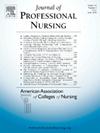在护理项目中,未被充分代表的领导对招聘和留住未被充分代表的教师和学生的影响
IF 2.9
3区 医学
Q1 NURSING
引用次数: 0
摘要
美国人口正在经历一场相当大的转变,因为个人年龄越来越大,种族和民族也越来越多样化。护理人员应反映一般人群,以提高医疗保健系统提供文化上适当的护理的可能性。然而,在护理教育中,少数民族领导人、教师和学生的代表性不足。所有教职员工和学生都可以从代表性不足的护士领导那里获得对文化谦逊、种族关系和种族的独特见解。增加未被充分代表的学术领袖的数量可能有助于护理项目招募、教育、指导并成功毕业更多未被充分代表的护理学生。这篇文章强调了学术护理领导职位中代表性不足的个人的重要性,以及他们对招募和留住代表性不足的教师和学生的影响。本文章由计算机程序翻译,如有差异,请以英文原文为准。
Influence of underrepresented leaders on recruiting and retaining underrepresented faculty and students in nursing programs
The U.S. population is undergoing a considerable transformation as individuals become substantially older and more racially and ethnically diverse. The nursing workforce should mirror the general population to improve the likelihood that healthcare systems provide culturally appropriate care. However, in nursing education, minority leaders, faculty, and students are underrepresented. All faculty and students can gain unique insights into cultural humility, race relations, and ethnicity from underrepresented nurse leaders. Increasing the number of underrepresented academic leaders may help nursing programs recruit, educate, mentor, and successfully graduate more underrepresented nursing students. This article highlights the importance of underrepresented individuals in academic nursing leadership positions and their influence on recruiting and retaining underrepresented faculty and students.
求助全文
通过发布文献求助,成功后即可免费获取论文全文。
去求助
来源期刊
CiteScore
4.80
自引率
8.00%
发文量
153
审稿时长
52 days
期刊介绍:
The Journal will accept articles that focus on baccalaureate and higher degree nursing education, educational research, policy related to education, and education and practice partnerships. Reports of original work, research, reviews, insightful descriptions, and policy papers focusing on baccalaureate and graduate nursing education will be published.

 求助内容:
求助内容: 应助结果提醒方式:
应助结果提醒方式:


